Sarah Everard one year on: The people trying to make change
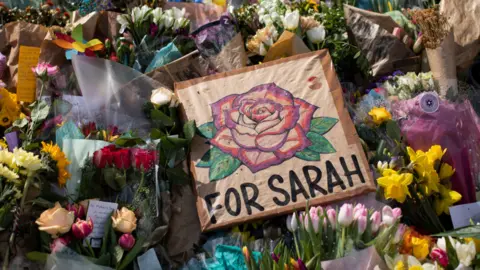 Getty Images
Getty ImagesOn 3 March 2021, 33-year-old Sarah Everard was kidnapped in South London as she was walking home from a friend's house.
One week later, her body was found. She'd been murdered by Met Police officer Wayne Couzens.
Sarah's death sparked national outcry, spurring women to share their experiences of feeling unsafe on the streets.
Those conversations led to awareness and also attempts to make change.
One London council created an interactive map asking women to highlight spots they find unsafe. A group of volunteers in Edinburgh started a phone line to keep women company when walking home.
Radio 1 Newsbeat has been speaking to individuals and organisations about what they've done in the past 12 months to improve women's safety and awareness of male violence.
The town planner putting women first
Emily Day is a consultant that advises people building town centres and housing developments. The 27-year-old says women's safety is now a priority.
"A story like Sarah's brings home how important our mission is," Emily tells Newsbeat.
She says lots of planning already goes into making towns and cities safe, but there's more to be done, especially in residential areas.
"If a street is overlooked by shops and apartments, it means if you're walking on a pavement, you're in view of a shop window or living room".
"Now we're focusing more on the security of buildings. We're not just looking at fobs and locks, but also well lit doorways and the ability to see into a space before you walk into it, so having clear glass entry ways.
"These are now appearing as industry standards".
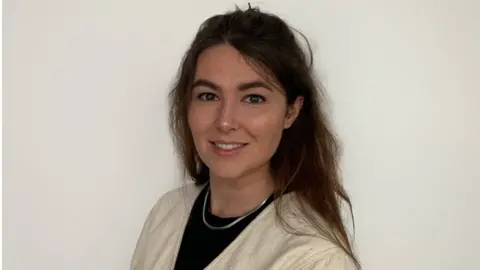 Emily Day
Emily DayEmily says it "wasn't always the case" that women and minorities were consulted in projects like the ones she works on, but now it is.
"Every time we work on a project, we consult the local community and Sarah's death highlighted the importance of hearing from women, especially when it comes to what makes them feel safe.
The teacher challenging male behaviour
Dr Daniel Guinness runs Beyond Equality, which provides workshops for boys and men at schools, universities and workplaces across the UK. The idea is to encourage healthier conversations about gender, offering a space to re-think stereotypes and the pressures of masculinity.
He says demand for their programmes has significantly increased since Sarah's death.
"We used to work with around 75 schools a year and last year alone we worked with 400," he tells Newsbeat.
"We also held a teachers' forum and had teachers from over 700 schools attending. There's a huge willingness to learn".
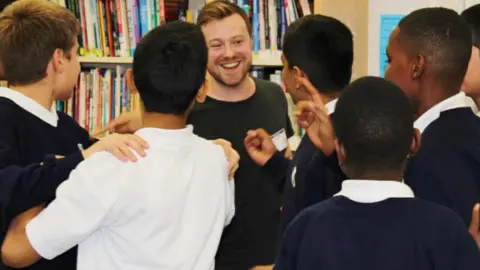 Beyond Equality
Beyond EqualityThe workshops challenge men to consider the world from the perspective of women.
"It's about understanding that a journey on public transport for you, won't be the same experience of your sister or mum.
"It's about realising that normalising and overlooking small acts of harassment and violence lead to more extreme cases".
The app designer helping women get home
In January 2021 Emma Kay launched WalkSafe, a free app designed to help women feel safer when walking home.
It helps users avoid crime hotspots by showing on a map where recent incidents have taken place. The data is based on official crime data and updated each month.
The day after Sarah Everard's death the app was downloaded by 500,000 people - which Emma describes as "bittersweet".
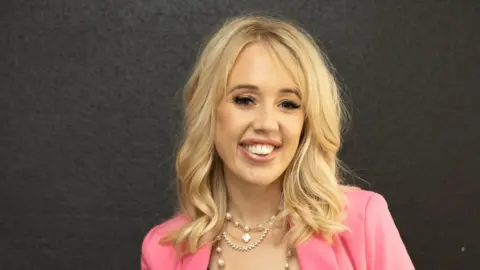 Emma Kay
Emma Kay"It was lovely to think we'd created something that users can seek comfort in but at the same time it felt awful".
Emma, who's 33, explains the downloads after Sarah's death allowed them to get more funding and expand their app to offer more features.
"We now have a podcast where we interview experts on safety and launched a new platform specifically recording incidents on the London Underground".
The police force taking local action
Because of the nature of Sarah's murder, trust in police was shaken. The Met Police were heavily criticised for employing Wayne Couzens, after failing to investigate a previous incident.
Shortly after, they were also criticised for the way they handled a vigil for Sarah.
It's something Donna Jones is aware of. She's the Police and Crime Commissioner for Hampshire and the Isle of Wight, an area that polices over 2 million people.
She acknowledges women "became apprehensive of being approached by the police". To tackle it, her force upped messages of "public reassurance that police are there to help".
"We put lots of posts on social media that said if you're stopped by police, you can ask to see their warrant, you can phone 999 to check that officer is on duty".
It's a strategy the Met Police encouraged too.
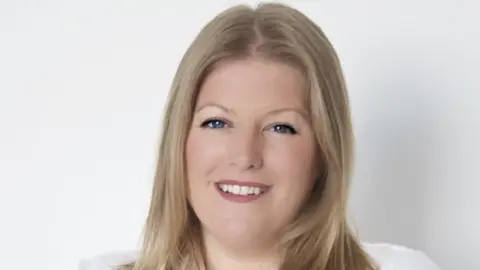 Donna Jones
Donna JonesSocial media posts aside, the force Donna represents also identified times where women were under 'increased risk', like freshers week.
"My patch has four universities in it, so for these weeks we increased police presence and installed more CCTV around clubs".
"We also worked with local taxi companies, helping drivers understand the signs of vulnerability, helping them spot women going home with men they don't know".
Donna understands it's easy to feel sceptical that change is happening and admits we "need more change and quicker".
But, Donna adds, she's proud of the work that's happening.
"There's never been a time in British history where we've had this much access to help and support from charities, police and health workers and also a real awareness of inappropriate behaviour".


